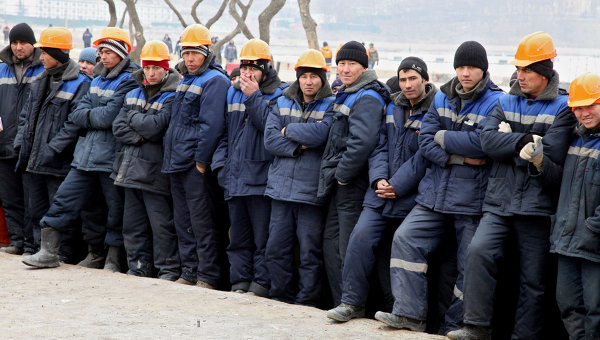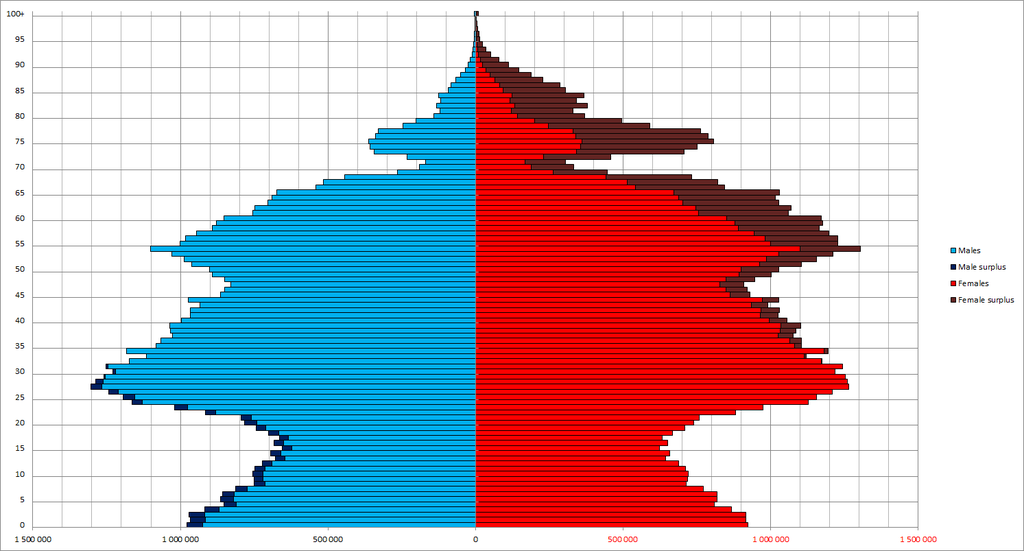Will You Please Come? Russia Needs More Migrants to Survive
914 views / 21 Sep 2015
Despite popular talks on limiting migration from the countries of the former Soviet Union, Russia needs much more immigrants than it currently has simply to keep the economy from collapsing.
By Afanasiy Pervomaisky
Migrants, migration… Migrants are supposedly everywhere these days. “The hordes of migrants” are storming the shores of Europe, said UK Foreign Affairs Secretary Philip Hammond; Donald Trump promised to deport all migrants out of the United States; and most of us have probably discussed the issue of migration at the dinner table or while sipping a pint or two at a neighborhood pub over the past month.
There are a lot of migrants in Russia. In fact, we’re second only to the United States in the sheer number of migrants that have arrived in our country over the last two decades. Almost 10 million people came to Russia between 1990 and 2014 to look for better opportunities, according to Russia’s Federal Statistics Service (Rosstat).
Migrants are often shown in a bad light. Many Russians have negative views towards migrants. They argue that migrants take over jobs, increase crime rates, bring in diseases and bring up other mostly deceptive excuses to cover up their internal racist beliefs and xenophobia, advocating for stricter anti-immigration policies. Migrants are seen as the outsiders, as foreign elements that can’t be trusted and often referred as “churkas” or “khachi” [the derogatory racist terms to describe people from the Caucasus and Central Asia].
Except, Russia needs migrants to survive. In fact, Russia needs much more migrants than the country currently has simply to keep the national economy from plunging even further.
Between 2015 and 2020, Russia’s workforce will decrease by 8 – 12 percent and by another 10 – 20 percent after 2030, said Sergei Aleksashenko, a leading Russian economist and a senior research fellow in the Global Economy and Development Program at Brookings Institution. To compensate for retirees, emigrees and a fewer number of young people entering the workforce as the result of low birthrates during the 1990s, the Russian government will have to import additional workforce from elsewhere, Aleksashenko argued.
It all comes down to simple math – like it or not, but we’ll need millions of new workers to sustain our economy at the current rate. And if Russia wants to have an economic growth, it will have to accept even more immigrants. Unless of course every work-capable Russian citizen steps up and starts working two jobs, which is quite unlikely to be honest as some of us can’t even hold one job.
Right now, most economic migrants that come to Russia hail from Central Asia. Their ability to speak fairly good Russian and cultural proximity due to the shared Soviet history are key advantages that migrants from Central Asia have over migrants from other parts of the world. Russia should be taking advantage from these factors, allowing more Central Asian migrants to come in.
The world’s leading economies will need more migrants to develop their economies in the future, the Canadian Globe and Mail reported. This means the developed countries will start scrambling for work-capable migrants from around the world, including post-Soviet countries.
Being more economically attractive, North America and Western Europe can attract the most educated and qualified migrants from around the world. Unfortunately, the same cannot be said about Russia. Most of our migrants are either those who couldn’t make it to a more economically-developed Western country or people who chose to come to Russia because they spoke the language and thought that they would adapt better here since the Russian society was closer to them than a Western European or North American one.
Russia should exploit this factor and try to attract as many work-capable migrants from the former Soviet Republics as it can, especially since we had already lived in the same country for some odd 70-years. However, if the government limits their access to Russia, they might just go somewhere else, like a growing number of Uzbeks, for example, are going to China.
Russia can’t afford to lose out on attracting immigrants from the countries of the former Soviet Union, considering that our country is facing a significant workforce shortage in the near future. Russians should realize that migrants make good economic sense, while xenophobia doesn’t.
POST A COMMENT
Your email address will not be published. Required fields are marked *


comments (0)
Write a comment share your opinions with others.